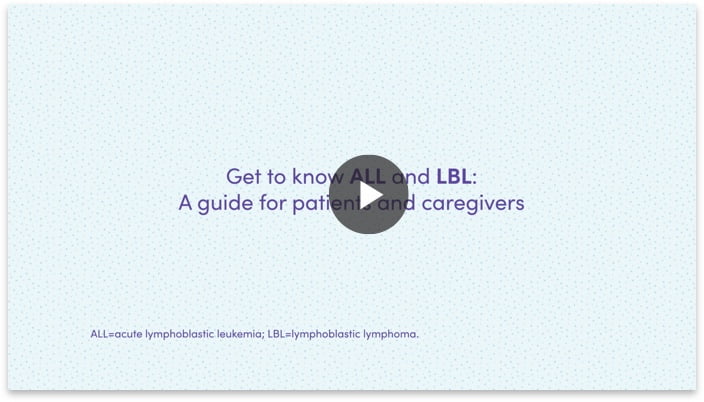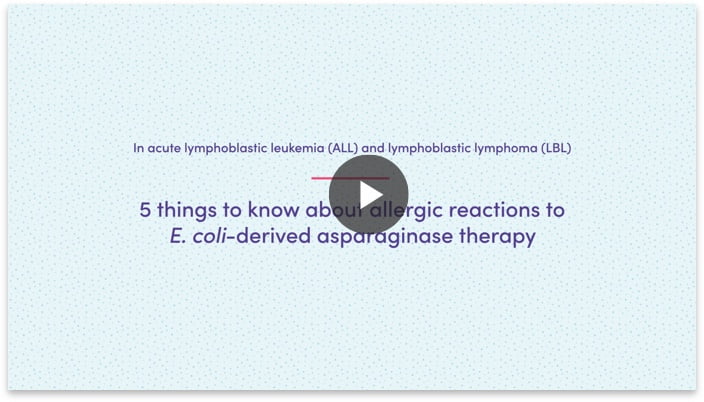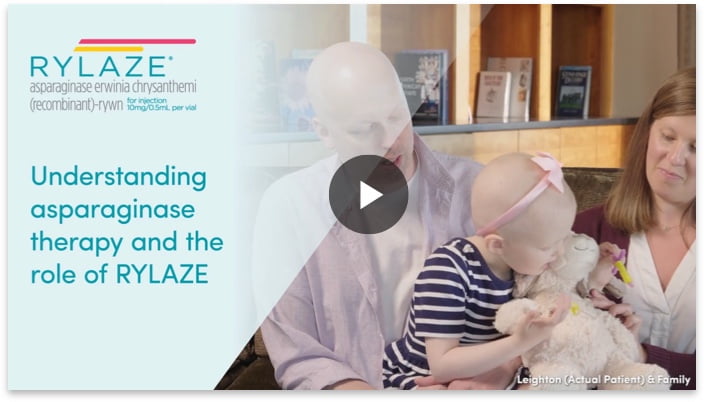What is RYLAZE?
RYLAZE is a prescription medicine, given by intramuscular injection, that is part of a chemotherapy regimen used to treat adults and children 1 month
or older who have acute lymphoblastic leukemia (ALL), a type of blood cancer that affects the white blood cells that help fight infection, and lymphoblastic
lymphoma (LBL), a type of non-Hodgkin lymphoma that also affects white blood cells. RYLAZE is used in patients who have had an allergic reaction to E. coli asparaginase.
IMPORTANT SAFETY INFORMATION
RYLAZE should not be given to people who have:
- History of serious allergic reactions to RYLAZE
- History of serious swelling of the pancreas (stomach pain), serious blood clots, or serious bleeding during previous asparaginase treatment
- Severe damage to the liver
RYLAZE may cause serious side effects, including:
- Allergic reactions (a feeling of tightness in your throat, unusual swelling/redness in your throat and/or tongue, rash, or trouble breathing), some of which may be life-threatening
- Swelling of the pancreas (stomach pain), which, if left untreated, may be fatal
- Blood clots (may be experienced as headache, arm or leg swelling, shortness of breath, or chest pain), which may be life-threatening
- Bleeding, which may be life-threatening
- Liver problems (may result in abnormal laboratory values) or, in severe cases, hepatic veno-occlusive disease (reduced blood flow in the liver)
Contact your doctor immediately if any of these side effects occur.
Some of the most common side effects with RYLAZE include:
- Liver problems
- Nausea and vomiting
- Bone and muscle pain
- Infection
- Tiredness
- Headache
- Fever with low white blood cell count
- Fever
- Bleeding
- Mouth swelling (sometimes with sores)
- Pain in the abdomen
- Decreased appetite
- Allergic reactions
- High blood sugar levels
- Diarrhea
- Swelling of the pancreas
- Low levels of potassium in your blood
RYLAZE can harm your unborn baby. Inform your doctor if you are pregnant, planning to become pregnant, or nursing. Females of reproductive potential should use effective contraception
(other than hormonal contraceptives) during treatment and for 3 months following the final dose. Do not breastfeed while receiving RYLAZE and for 1 week after the final dose.
Tell your healthcare provider if there are any side effects that are bothersome or that do not go away.
These are not all the possible side effects of RYLAZE. For more information, ask your healthcare provider.
Call your doctor for medical advice about any side effects.
You are encouraged to report negative side effects of prescription drugs to the FDA. Visit www.fda.gov/medwatch,
or call 1-800-FDA-1088 (1-800-332-1088).
Please see full Prescribing Information and discuss with your doctor.






